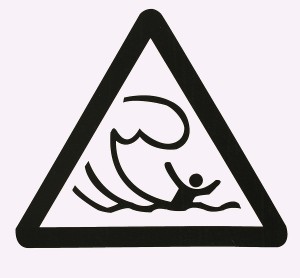How to Tell if a New Recruiter Will Sink or Swim in the First 90 Days

Whatever the extent of the training provided to new recruiters, they are soon sent to the phones and it’s sink or swim time. How can managers determine if a rookie recruiter has what it takes to succeed over the long term? What are some of the warning signs that a new hire is not cut out for a career in the fast paced world of recruiting?
Becomes Deflated at the First Sign of Failure
Successful recruiting requires a positive can-do attitude. Making 80-100 calls per day can become mind numbing if you don’t keep your eye on the prize. The ultimate prize is a successful placement, but there are many smaller victories to be had before a sale is made and a deal is closed. And each step in the process takes skill and determination. For a new recruiter, the process of phoning, connecting, making recruiting presentations, securing job orders, sourcing and sendouts, is a veritable minefield. And that’s just the tip of the iceberg. Add shaky candidates and overly cautious hiring managers to the mix and new recruiters may just call it quits well before making their first placement. But the contenders have the innate ability to brush off their early missteps and forge ahead, while retaining optimism and a positive attitude. If a new hire shows signs of becoming deflated when encountering the many obstacles in the fierce recruiting life cycle, he or she probably won’t make it past the first twelve weeks.
Can’t Connect With People
Recruiting is a service industry that requires the ability to connect with people and develop long-term relationships with hiring managers, as well as candidates. A good recruiter exudes confidence, competence and is able to instill trust. Your sales manager may be screeching in the background about numbers, sales targets and billings, but you must present a calm demeanor throughout the process. Never let them see you sweat! While you are stressed over your billings, you must take a deep breath and provide personalized service to both the client and the candidate. And you need to fully understand the business requirements of your client corporation to make a good match. And each step in the recruiting life cycle requires additional relationship building skills and talent in influencing others, before a recruiter can close the deal. If new hires aren’t effective communicators and good listeners, and are unable to connect with people on a personal level– they won’t last.
Bad Time Management Skills
Recruiting is a fast-paced business that requires superb time management skills. And the sales targets, metrics and expectations are intense. New hires can easily fall into the trap of wasting time on unqualified candidates, administrative tasks and bad job orders. And at the end of the month, they have nothing to show for their efforts. Building strategic relationships isn’t about whiling away your days schmoozing and kibitzing with everyone you meet. In the course of a day, busy recruiters must hit their activity metrics, by producing four to five hours of market connect time, qualify candidates, schedule sendouts, negotiate contracts, calm candidates and present a sense of urgency to hiring managers to propel the process forward and make a placement. There’s a lot of juggling. Recruiters must bring an existing job order to the finish line, while lining up new business. It’s a never-ending cycle. If you see a new recruiter becoming bogged down with activities that don’t or can’t result in placements and billings, he or she will probably make a speedy exit within the first ninety-days.
Successful recruiters are competitive, independently driven, determined and focused. If new hires also possess superb time management skills, relationship-building skills and continual optimism, they have an excellent chance of surviving beyond the first ninety-days of the make-or-break period. There’s no greater feeling of accomplishment of rising to the surface and perfecting a butterfly stroke in record time. And once you start swimming, the rewards are great. The recruiting industry offers lucrative earnings and the satisfaction of placing quality candidates in the workforce. Turk, surgeon and best friend to J.D. on the comedy series Scrubs, said it best during the third season—“Dude, today I had to sink or swim all on my own; and guess what? A brother swam.”

